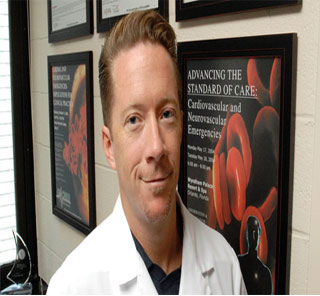
Utilizing this technology is assumed to help doctors in determining precise diagnosis of acute heart failure in particular subsets of patients. While conducting the research, experts thoroughly investigated data from the HEart failure and Audicor technology for Rapid Diagnosis and Initial Treatment (HEARD-IT) multinational trial. The trial which was triggered at nine sites lasted from March to October 2006. The scientists calculated the diagnostic accuracy given by adding acoustic cardiography to an emergency medicine physician’s tools.
Sean Collins, MD, UC emergency medicine associate professor and lead author of the study remarked, “The S3 is highly associated with heart failure. So we studied how measuring the presence of the S3 changed physicians’ impressions of what was going on, how it potentially changed their workup and treatment for patients.â€
A secondary analysis was initiated by the researchers on the HEARD-IT results for inspecting particularly on certain subgroups of patients showing a harder diagnostic complexity. Obese, patients with kidney failure and patients with an intermediate level of b-type natriuretic peptide were considered as subgroups. It was mentioned that natriuretic peptide is a biomarker possibly correlated to acute heart failure and cardiovascular risk.
Collins highlighted, “Our findings suggest we diagnose heart failure only about half the time in these patients without acoustic cardiography. With it, we improve the accuracy to about 70 percent. It’s pretty helpful in this subset of patients.â€
Improvement in diagnostic accuracy of 22 percent was apparently noted in patients with indeterminate BNP levels who were provided with acoustic cardiography. On completion of the research, it was concluded that HEARD-IT trial suggests acoustic cardiography to be employed in treating these subgroups.
The research is published online in the American Journal of Emergency Medicine.
